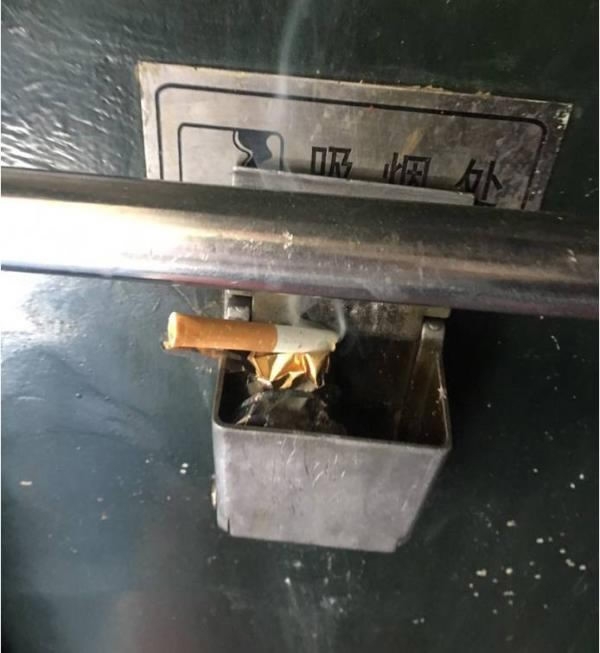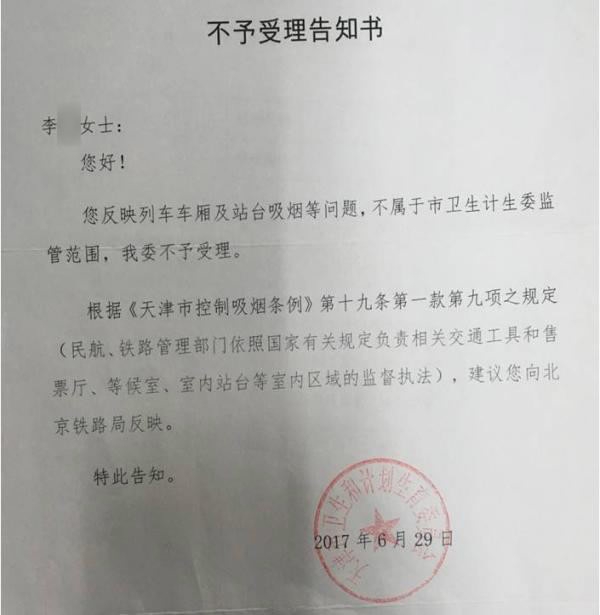
China
23:01, 18-Aug-2017
Woman sues China rail authority over smoking on train
CGTN

A university student from northern China’s Hebei Province has filed a lawsuit against Harbin Railway Bureau after being “served” secondhand smoke onboard, in a legal action believed to be the first of its kind in China.
On June 9, according to The Paper, Li Yan (not her real name) took the K1301 train from Beijing to Tianjin, a service managed by Harbin Railway Bureau. But as soon as she got on the train, she smelled smoke.
"They were smoking in the smoking area, but the whole soft sleeper was full of smoke. Closing the door helped, yet once it was opened, the smell got in. I felt uncomfortable,” Li recalled, adding that in addition to passengers, many staff were smoking as well and no one stepped forward to stop them.

Smoking area on a train /From Li Yan's photo album
Smoking area on a train /From Li Yan's photo album
Afterwards, Li reported the problem to the department of transportation supervision and administration under National Railway Administration, which replied that it wasn't responsible for health supervision and management.
Li also complained to the Municipal Commission of Health and Family Planning in Beijing and Tianjin, only to be told that such smoking control duties belonged to the Railway Bureau. This was when Li decided to bring the case to court.

Reply from Municipal Commission of Health and Family Planning in Tianjin /the Paper Photo
Reply from Municipal Commission of Health and Family Planning in Tianjin /the Paper Photo
Her lawyer, Zhong Lan’an, said the two cities' smoking control regulations had clearly banned smoking on public transportation, and there are obligations for managers of public areas to dissuade smokers. In this regard, Li requested Harbin Railway Bureau provide compensate for the train ticket cost of 102.5 yuan (15 US dollars), attorney and litigation fees, a mental damage compensation fee of one yuan, the cost of buying a mask of 19 yuan, and cancel all smoking areas.
The trial is scheduled for August 24. Since no one sued operators or managers of a public places for smoking matters, the case is viewed as having special meaning.

SITEMAP
Copyright © 2018 CGTN. Beijing ICP prepared NO.16065310-3
Copyright © 2018 CGTN. Beijing ICP prepared NO.16065310-3